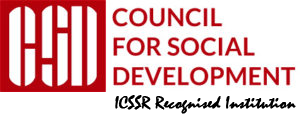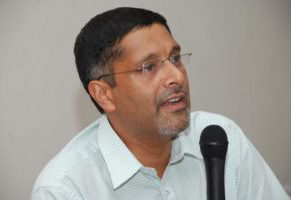Speaker: Dr L D Mishra
Chair: Professor J B Tilak, Distinguished Professor, CSD and Former Vice-Chancellor, NUEPA
Date: November 16, 2017 (Thursday)
Time: 3.00 pm
Venue: Durgabai Deshmukh Memorial Lecture Hall, CSD, Sangha Rachna, 53 Lodi Estate, New Delhi 110003
Abstract of the Presentation
The presentation will cover importance of literacy, challenges of launching a movement for total literacy, positive offshoots of a campaign for total literacy and tasks ahead. The primary mandate of National Literacy Mission was to make 30 million unlettered adults fully functionally literacyby 1990 in a span of five years and an additional 50 million by 1995. This was an extremely challenging assignment in as much as (a) the prevailing environment was one of cynicism and skepticism against literacy (b) functional literacy for adults in comparison with primary and elementary education was a non priority issue. The National Adult Education Programme (NAEP) launched by Morarji Bhai Desai during the Janata Rule on 2.10.1978 had already failed to deliver the results, i.e., making 100 million unlettered adults functionally literate. In this background, it was realized by the NLM that government cannot directly go in for social mobilization through social communication and create a conducive climate for imparting functional literacy. Government can act as a promoter, facilitator, catalytic agent but cannot directly play the role of social mobiliser or communicator. This task should be best left to creative thinkers, writers, artistes, social and educational activists. It is with this end in view that government promoted creation of a government sponsored NGO called Bharat Gyan Vigyan Samiti (BGVS) With effect from September 1989. The BGVS was headed by Dr. Prof Malcom S. Adiseshaiah and had people of originality, imagination, clear perception and innovation like Dr. M. P. Parmeswaran, Vinod Raina, K.K. Krishna Kumar and many others. The BGVS took the initiative of lunching the countrywide jatha or caravan of teachers, students, women and youth known as Bharat Gyan Vigyan Jatha who successfully covered over 100,000 villages spread over 300 districts (out of 460 districts then) and spread the message of literacy among the mute unlettered millions.
A Brief Introduction of the Speaker
Dr L D Mishra is a retired IAS officer. He was Director General; National Literacy Mission for around six years during 1987 to 1993, which according to him was the most productive and exciting phase in his 50 year long civil and public service career (1964-2014). He spearheaded the launch of Total Literacy Campaign (TLC) which started in the district of Ernakulum and later followed in the remaining 13 districts of Kerala, Goa, Puducherry and over 200 districts in various other parts of the country such as Andhra Pradesh, Karnataka, Tamilnadu, Bihar,Odisha, Rajasthan, West Bengal and UP.

